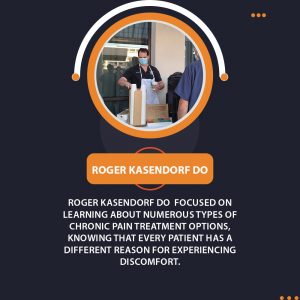Addiction Management: A Holistic Approach to Recovery


Addiction is a complex and pervasive issue that affects millions of individuals worldwide. Whether it’s substance abuse, gambling, or technology addiction, the consequences can be devastating for both the individual and their loved ones. However, addiction is not an insurmountable challenge. With the right strategies and support systems in place, individuals can embark on a path to recovery and regain control over their lives. In this article, we will explore the concept of addiction management, discussing various approaches, therapies, and techniques that can contribute to a holistic and successful recovery.
Understanding Addiction
Before delving into addiction management, it is crucial to grasp the nature of addiction itself. Addiction is a chronic brain disorder characterized by compulsive behavior despite adverse consequences. It often develops from a combination of genetic, environmental, and psychological factors. Addiction can alter brain chemistry, impair decision-making abilities, and lead to a cycle of cravings and relapses. Understanding addiction as a disease is vital for effective management, as it shifts the focus from blame to compassion and treatment.
A Holistic Approach to Addiction Management
Addiction management is most effective when it adopts a holistic approach, addressing the physical, psychological, and social aspects of the individual. This comprehensive strategy recognizes that addiction is a complex issue with multifaceted causes and requires tailored solutions. Here are the key components of a holistic approach to addiction management:
Medical Detoxification: For individuals struggling with substance abuse, medical detoxification under professional supervision is often the first step. It involves safely managing withdrawal symptoms and ensuring physical stabilization.
Therapy and Counseling: Psychological therapies, such as cognitive-behavioral therapy (CBT), motivational interviewing, and group therapy, play a crucial role in addiction management. These approaches help individuals explore the underlying causes of addiction, develop coping mechanisms, and learn strategies to prevent relapse.
Pharmacotherapy: Medications can be prescribed to aid in addiction management. For instance, medications such as methadone or buprenorphine are used in opioid addiction treatment, while medications like naltrexone help reduce alcohol cravings.
Lifestyle Changes: Adopting a healthy lifestyle is fundamental to long-term recovery. This includes regular exercise, proper nutrition, and adequate sleep. Engaging in activities that promote mental and emotional well-being, such as meditation, yoga, or art therapy, can also be beneficial.
Social Support: Building a robust support system is crucial for successful addiction management. This can involve participation in support groups like Alcoholics Anonymous (AA) or Narcotics Anonymous (NA), as well as connecting with friends, family, or mentors who understand and support the recovery process.
Alternative Therapies and Approaches
In addition to traditional treatment methods, various alternative therapies and approaches can enhance addiction management. Some of these include:
Mindfulness-Based Stress Reduction (MBSR): MBSR incorporates mindfulness meditation, yoga, and body awareness techniques to reduce stress and promote self-awareness. It can help individuals develop healthier coping mechanisms and reduce the risk of relapse.
Art Therapy: Engaging in creative activities can serve as a therapeutic outlet for individuals in recovery. Art therapy allows individuals to express emotions, explore their inner selves, and find alternative ways to cope with stress or triggers.
Equine Therapy: Interacting with horses can be transformative for individuals in addiction recovery. Equine therapy promotes emotional awareness, responsibility, and empathy. It also offers a unique opportunity for individuals to build trust and establish healthy relationships.
Adventure Therapy: Adventure-based activities, such as hiking, rock climbing, or wilderness expeditions, can be used as part of addiction management programs. These activities promote teamwork, resilience, and self-discovery, fostering personal growth and building confidence.
Addiction management requires a comprehensive and individualized approach that encompasses physical, psychological, and social well-being. By integrating traditional treatment methods with alternative therapies, individuals in recovery can enhance their chances of long-term success. It is important to remember that addiction is a chronic condition, and recovery is an ongoing journey that requires commitment, patience, and support. Through a holistic approach, individuals can regain control over their lives, develop healthier coping mechanisms, and rebuild relationships. Addiction management is not about erasing the past but rather embracing a future filled with hope, resilience, and personal growth. With the right tools and support, recovery from addiction is possible, and fulfilling life free from the grip of addiction awaits those who embark on this transformative journey.
